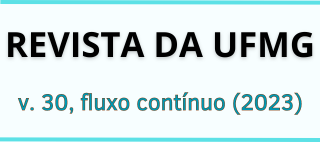Reflexiones epistemológicas y éticas sobre la inteligencia artificial como área de la computación cognitiva
DOI:
https://doi.org/10.35699/2965-6931.2023.47723Palabras clave:
cientificidad, modernidad, principio moral, computación cognitiva, inteligencia artificialResumen
El texto que aquí se presenta plantea algunas consideraciones acerca del avance científico que permitió el surgimiento de un campo de las Ciencias de la Computación, la denominada computación cognitiva, cuyo mayor logro es el advenimiento de la Inteligencia Artificial, en torno a la cual las investigaciones y creaciones tecnológicas han ido cambiando radicalmente el ethos humano en proporciones sin precedentes. Además del abordaje afín a la cientificidad que configura la concepción de la mente como metabolismo del cerebro, también se pretende señalar la necesidad de reflexionar sobre tales ocurrencias en el ámbito de la Ética Filosófica (Filosofía Práctica), ya que parece por lo menos peligroso reducir epistemológicamente la integralidad de la condición humana a mecanismos biológicos. Esta tendencia se ha actualizado en las discusiones sobre la IA y la agencia maquínica, una tendencia que priva a los humanos de su espiritualidad al equipararlos con entidades maquínicas que simulan seductoramente los mecanismos del cerebro sapiens.Referencias
AGAZZI, Evandro. Conversazione con Evandro Agazzi. Entrevista concedida a Mario Alai, Portale Italiano di Filosofia Analitica. Giornali di Filosofia, n. 6, gennaio, 2012.
BECK, Ulrich. Sociedade de risco: rumo a uma outra modernidade. São Paulo: Editora 34, 2011.
BERGSON, Henri. A evolução criadora. Tradução de Bento Prado Neto. São Paulo: Martins Fontes, 2005.
BERGSON, Henri. L’évolution créatrice. Canadá: Les Échos du Maquis, 2013. Disponível em: https://philosophie.cegeptr.qc.ca/wp-content/documents/L%C3%A9volution-cr%C3%A9atrice.pdf. Acesso em: 15 ago. 2023.
BERNARD, Claude. Introduccion al estudio de la medicina experimental. [S.l.]: Libros Tauro, 2005.
BODEN, Margaret A. Inteligência artificial: uma brevíssima introdução. Tradução de Fernando Santos. São Paulo: Unesp, 2020.
BODEN, Margaret A. Introducción. In: BODEN, Margaret A. (Comp.). Filosofía de la inteligencia artificial. Traducción de Guillermina Feher de la Torre. México: Fondo de Cultura Económica, 1994. p. 9-32.
BROCHADO, Mariah. Prolegômenos a uma filosofia algorítmica futura que possa apresentar-se como fundamento para um cyberdireito. Revista de Direito Público-RDP, Brasília, v. 18, n. 100, p. 131-170, out./dez. 2021b. Disponível em: https://www.portaldeperiodicos.idp.edu.br/direitopublico/article/view/5977/pdf. Acesso em: 8 jan. 2023.
CHAUÍ, Marilena de Souza. Convite à filosofia. 12. ed. São Paulo: Ática, 1999.
COTTINGHAM, John. Dicionário Descartes. Tradução de Helena Martins. Rio de Janeiro: Jorge Zahar, 1995.
CORDEIRO, Veridiana Domingos. Novas questões para sociologia contemporânea: os impactos da Inteligência Artificial e dos algoritmos nas relações sociais. In: COZMAN, Fabio G; PLONSKI, Guilherme Ari; NERI, Hugo (Orgs.). Inteligência artificial: avanços e tendências. São Paulo: Instituto de Estudos Avançados, 2021, p. 206-226. E-book. Disponível em: http://www.iea.usp.br/publicacoes/ebooks/inteligencia-artificial. Acesso em: 02 fev. 2023.
CRUZ, Eduardo Rodrigues da. Criatividade, Transhumanismo e a metáfora Co-criador Criado. Quaerentibus, [S.l.], v. 5, n. 9, p. 42-64, 2017. Disponível em: https://philarchive.org/archive/CRUCTE. Acesso em: 12 jan. 2023.
D’AGOSTINI, Franca. Analíticos e continentais: guia à filosofia dos últimos trinta anos. Tradução de Benno Dichinger. São Leopoldo: Unisinos, 1999.
DESCARTES, René. Discurso do método; Meditações; Objeções e respostas; As paixões da alma; Cartas. Introdução de Gilles-Gaston Granger; prefácio e notas de Gerard Lebrun;. Tradução de J. Guinsburg e Bento Prado Júnior. 3ª ed. São Paulo, Abril Cultural, 1983.
DESCARTES, René. Les Meditations Metaphysiqves de Rene Des-Cartes. Tradução do Latim. Paris: Jean Camvsat & Pierre Le Petit, 1657. Disponível em: http://classiques.uqac.ca/classiques/Descartes/meditations_metaphysiques/meditations_metaphysiques_IMAGE.pdf. Acesso em: 15 ago. 2023.
FROHLICH, Joel. Reverse Engineering the Brain: will Europe's Human Brain Project simulate a human brain? Psychology Today, [S.l.]: Sussex Publishers, 09 maio 2017. Disponível em: https://www.psychologytoday.com/us/blog/consciousness-self-organization-and-neuroscience/201705/reverse-engineering-the-brain. Acesso em: 15 jan. 2023.
KANT, Immanuel. Kritik der reinen Vernunft, [s/l], 2014. Disponível em: https://nowxhere.files.wordpress.com/2014/09/kant-kritik-der-reinen-vernunft.pdf. Acesso em: 15 ago. 2023.
KANT Immanuel. Crítica da razão pura. 7. ed. Tradução de Manuela Pinto dos Santos e Alexandre Fradique Morujão. Lisboa: Fundação Calouste Gulbenkian, 2010.
KAPP, Ernst. Grundlinien einer Philosophie der Technik. zur Entstehungsgeschichte der Kultur aus neuen Gesichtspunkten (1877). Hamburg: Felix Meiner Verlag, 2015.
MAYOS, Gonçal. La ‘ignorancia prometeica’ frente la revolución de la inteligencia artificial. In: BARBOSA, Mafalda Miranda; BRAGA NETTO, Felipe; SILVA, Michel César; FALEIROS JÚNIOR, José Luiz de Moura. (Coords.). Direito digital e inteligência artificial: diálogos entre Brasil e Europa. Indaiatuba: Foco, 2021. p. 687-703.
MORA, José Ferrater. Dicionário de Filosofia. Tomo IV. São Paulo: Edições Loyola, 2001.
OLIVEIRA, Thaís de Bessa Gontijo de; CARDOSO, Renato César. Consiliência e a possibilidade do neurodireito: da desconfiança à reconciliação disciplinar. Revista Brasileira de Políticas Públicas, Brasília, v. 8, n. 2, p. 117-142, ago. 2018. Disponível em: https://www.publicacoesacademicas.uniceub.br/RBPP/article/view/5340. Acesso em: 19 jan. 2023.
RAMALHO, Daniel José da Silva. Paul Churchland e a problemática da semântica dos estados mentais. 2010. 81 f. Dissertação (Mestrado em Filosofia Contemporânea) – Departamento de Filosofia da Faculdade de Ciências Sociais e Humanas, Universidade Nova de Lisboa, Lisboa, 2010. Disponível em: https://run.unl.pt/bitstream/10362/5259/1/Disserta%c3%a7%c3%a3o1.pdf. Acesso: 18 jan. 2023.
RODRIGUES, Bruno Alves. A inteligência artificial no poder judiciário: e a convergência com a consciência humana para a efetividade da justiça. São Paulo: Thomson Reuters Brasil, 2021.
RUSSEL, Bertrand. História do pensamento ocidental: a aventura dos pré-socráticos a Wittgenstein. Tradução de Laura Alves e Aurélio Rabello. Rio de Janeiro: Nova Fronteira, 2017.
TEIXEIRA, João de Fernandes. Inteligência artificial. São Paulo: Paulus, 2009.
WHITBY, Blay. Artificial Intelligence: a beginner’s guide. Oxford: Oneworld, 2003.
WHITBY, Blay. Inteligência artificial: um guia para iniciantes. Tradução de Claudio Blanc. São Paulo: Madras, 2004.
WILSON, Edward Osborne. Consilience: the unity of knowledge. New York: Vintage Books, 1999.




